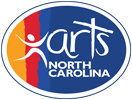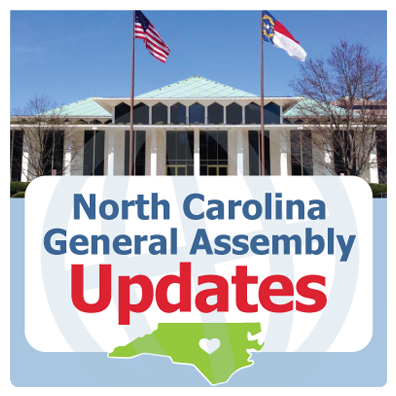Coronavirus Relief Legislation includes Unprecedented $9.4M in Aid for Arts

Today, the NC General Assembly passed coronavirus relief legislation (H1105) that provided $9.4 MILLION in emergency aid to the arts, the largest arts allocation in the State’s history. It is now on its way to Governor Cooper for his signature. It is a remarkable achievement for the North Carolina arts community in the face of a nearly $5 billion pandemic-driven budget shortfall.
Arts NC is grateful for the involvement and support of a strong network of arts advocates and legislators who are members of the Joint Caucus on Arts and Arts Education for their commitment, dedication, and hard work to ensure that North Carolina’s nonprofit arts community received this desperately needed coronavirus relief funding. Keeping arts alive in our state helps keep hope alive in our communities and will be a vital part of economic recovery in the wake of the pandemic.
While recognizing, appreciating, and even celebrating this unprecedented investment in the arts during these turbulent and uncertain times, it is important to acknowledge that only 98 of North Carolina’s counties are eligible for the $9-plus million financial aid package. Due to criteria attached to the funding, Mecklenburg and Wake counties will not benefit from the federal relief allocated by state legislators this week. Legislators wanted to prioritize the emergency funding for counties based on how “economically distressed” they are and the size of their populations, eventually limiting these funds to counties with populations under 1,000,000. Make no mistake, the outcome would have been different if not for the inspirational work of passionate arts advocates. Initial drafts of the legislation excluded 11 counties and designated the funding only for arts councils instead of all non-profit arts organizations.
Arts NC worked diligently to explain to legislative leaders that urban counties are not automatically imbued with ample private resources or local revenue streams to provide arts the lifeline they need right now. Our position was and remains that all 100 counties need equitable access to arts funding. We will continue to spread that message and work for financial support for all communities. We are hopeful that while Wake and Mecklenburg counties will not receive federal funding from the NC General Assembly’s most recent actions, they will still receive help locally through the CARES Act-funded Coronavirus Relief Fund (CRF). Mecklenburg County leaders set an example recently when the City Council allocated $1 million for their arts organization from their Local CRF funds.
Despite an imperfect outcome, arts advocates should be proud of what they were able to accomplish this week. In a frenetic two-day legislative session where outcomes can change on a dime, it took a strong presence and teamwork to deliver meaningful financial relief for non-profit arts. We feel it’s important and valuable to share how it happened and recognize those who played a major part.
Evolution of Emergency Relief Funding for Arts in the NC General Assembly, September 1-3, 2020:
On Monday, Aug. 30, Arts NC received word that funding would be distributed to arts councils and arts organizations in all 100 counties. However, the very next day the language in draft legislation had changed so that 11 counties with a “Tier 3” economic ranking from the NC Department of Commerce (meaning they are considered the “least economically distressed” counties) were ineligible for the emergency aid if their populations exceeded 130,000. In addition to this exclusionary criteria, federal funding was only to be distributed to arts councils, instead of all nonprofit arts organizations.
Arts NC immediately launched a concerted effort to amend this allocation to include nonprofit arts organizations in all 100 counties. This effort involved leadership of the Joint Caucus on Arts and Arts Education, our lobbyists at Ken Melton and Associates, staff and board leadership of the NC Arts Council, the NC Department of Natural and Cultural Resources (NCDNCR), Arts NC staff and board members, and our statewide network of arts advocates. Because of this effort the coronavirus relief legislation was amended to fund local arts councils and other nonprofit arts organizations in counties with a population of less than 1,000,000. Although we didn’t get exactly what we wanted in the final bill, our work did convince legislators to raise the population cap significantly, which resulted in relief funding for 9 additional counties (nearly two million additional North Carolina residents).
In addition to the NC Arts Council, there are two other arts organization that are part of the NCDNCR that were included in relief funding, as expected. The NC Symphony was allocated $400,000 and the NC Museum of Art will receive $2.5 million. Many other historical sites, museums, zoos and aquariums operating under NCDNCR received funding as well.
Lastly, Carolina Ballet was allocated $700,000 for COVID-19 relief funding – the only nonprofit arts organization not under NCDNCR to receive an allocation in this legislation. As Arts NC made clear last summer, line item allocations such as these have little oversight, are not equitable and require minimal accountability. As such, Arts NC does not advocate for or support line-item general operations funding allocations for organizations that are not agencies of the State of North Carolina.
In closing, we hope all of North Carolina’s arts advocates and supporters will rest assured that Arts NC will continue to advocate that the NC General Assembly provide equitable support to our statewide nonprofit arts community. And we will continue to partner with the NC Arts Council to develop more relief for the arts. This week’s exceptional financial aid package for the arts illustrates what we can accomplish when we work together. Arts NC appreciates and thanks our advocacy partners and the NC General Assembly for the historic level of funding provided in House Bill 1105 to help keep North Carolina arts alive during this public health and economic emergency.

